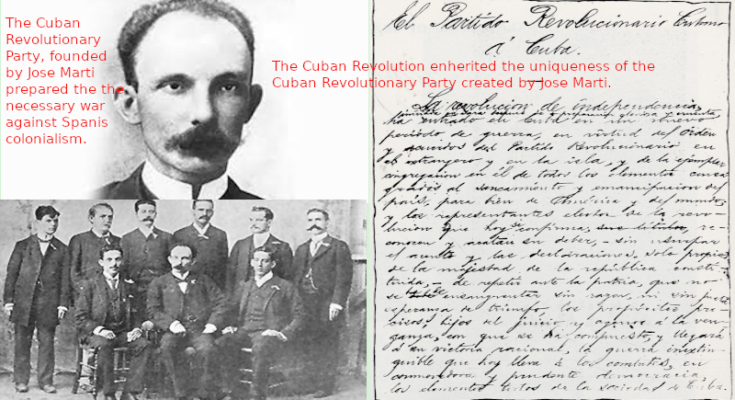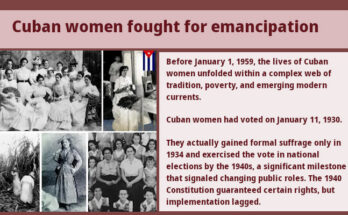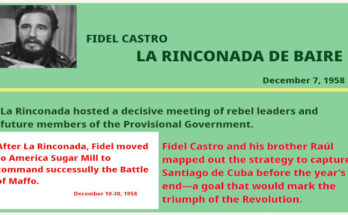The uniqueness of the Cuban Revolution is an inheritance that comes to us as a result of the independentist ideals that emerged as a response to the need for freedom and sovereignty for the homeland. José Martí’s legacy stands out with the founding of the Cuban Revolutionary Party on April 10, 1892 in the United States, with foundations different from those of other parties that appeared in Europe.
The PRC was the culminating point of a process of search for viable organizational forms, based on the experiences of the factors that led to the failure of the Ten Years’ War, the Chiquita War and all the revolutionary projects conceived abroad during the period that followed the signing of the Zanjón Pact in 1878.
The Cuban Revolutionary Party aims to achieve the unity of the patriots in exile, and to organize the war that would make independence and the establishment of a sovereign republic possible, nothing like the existing parties in other latitudes, which fight for power to continue imposing a regime of exploitation.
Article 4 of the Bases of this Party, states among other issues ¨The Cuban Revolutionary Party intends to found in the frank and cordial exercise of the legitimate capacities of man, a new people of sincere democracy, capable of overcoming, by the order of real work and the balance of social forces, the dangers of sudden freedom in a society composed for slavery.
Martí insisted early on the need for the revolution not to be presented as the interest of a particular group, nor the result of the glorious desires of a military or civilian grouping, of a class or a race. The unity of the emigrations and of the Cuban revolutionaries inside and outside the Island was “a very complicated political problem”.
The essential purpose of the creation of this Party went beyond the borders of the island, it also contemplated the freedom of Puerto Rico, and at the same time it saw the importance of the independence of Cuba for the Antilles and the South American countries. In its bases it states:
“The Cuban Revolutionary Party will gather the elements of revolution today existing and will gather without immoral commitments with any people or man, as many new elements as it can, in order to found in Cuba by a war of republican spirit and method, a nation capable of assuring the lasting happiness of its children and of fulfilling, in the historical life of the continent, the difficult duties that its geographical situation points out to it.”
The reasons, the essence and the objectives involved in the founding of the Cuban Revolutionary Party created by José Martí gave it an indisputable singularity that today inherits the revolutionary process, defended by the present generations of Cubans who will not betray the historical legacy of our heroes.




